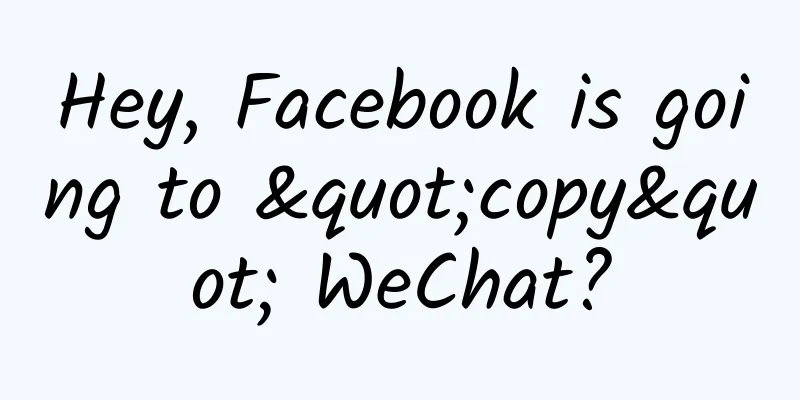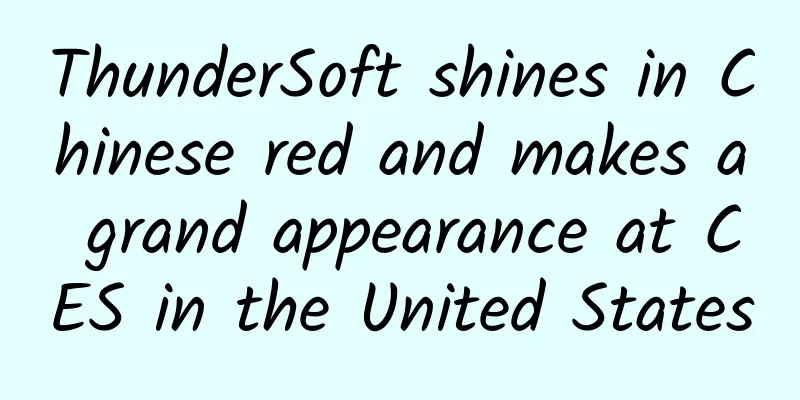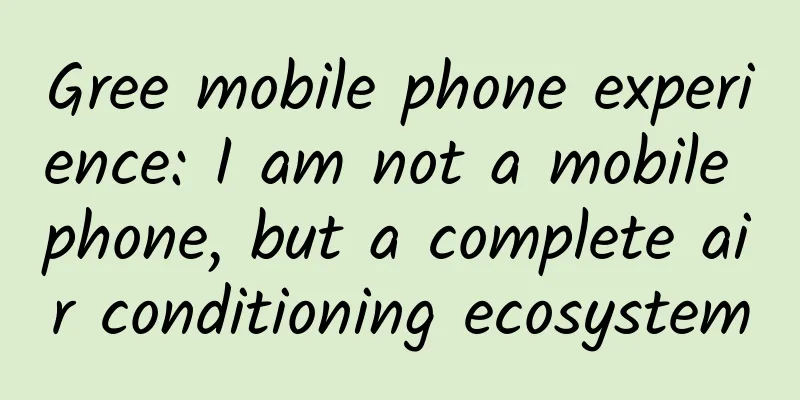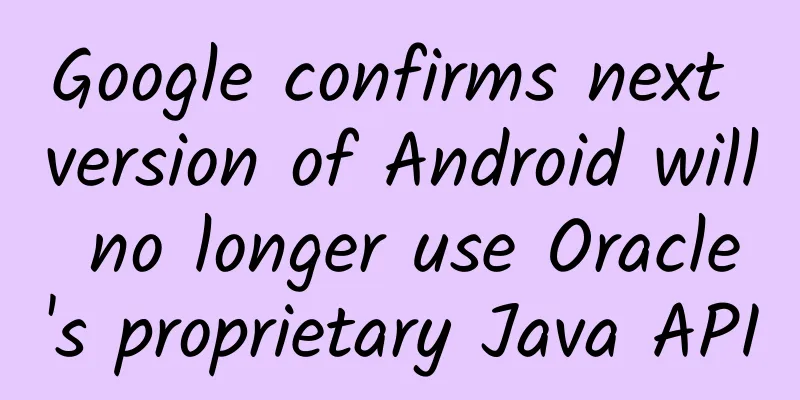Hey, Facebook is going to "copy" WeChat?

|
Facebook is learning from WeChat and intends to build a "super app" similar to WeChat outside of the Chinese market. Just as the "3Q War" that year prompted Ma Huateng to make up his mind to open his arms and build an open platform, which further gave birth to the mobile super platform WeChat, Zuckerberg was also seeking a new way out for Facebook under the pressure of the "privacy leak scandal" that lasted for a year. Since the Facebook scandal in March 2018, the aftermath has not subsided for more than 12 months, and Facebook and its founding team have entered the most difficult year. This incident became a turning point for Facebook. The five-hour congressional hearing and more than a year of internal and external troubles have forced Zuckerberg to re-examine Facebook's positioning, vision and future.
Remember Zuckerberg at the congressional hearing in April 2018? On March 6, Zuckerberg published a 3,200-word blog, which can be called a "book that breaks the wall" after Zuckerberg "faced the wall" for more than a year. This blog is a summary of Zuckerberg’s thoughts and Facebook’s transformation in recent years: from open square social networking to living room-style private social networking. Zuckerberg publishes blog post, planning new direction for Facebook Over the past 15 years, Facebook and Instagram have built a "digital public square." However, when the idea of creating a global social graph was realized, people began to escape from the "square" and return to one-on-one private communication and small groups, returning to the "digital living room space." This also explains why Facebook’s “privacy leak scandal” caused such an uproar. The company's reputation has been damaged, and it is hard to believe that Facebook has the ability and willingness to build a private social platform. This blog is an attempt to explain Facebook's efforts to protect privacy in order to restore the confidence of the public and regulators. However, in the era of open social networks, the cornerstone of Facebook's business model comes from the advertising business that mines users' open data. Once it turns to private social networking, how can Facebook find more diversified revenue pillars to gradually get rid of its dependence on advertising? "Build more ways for people to interact on this basis, including calls, group chats, stories, commerce, payments, business, and ultimately become a platform for many other types of private services." Zuckerberg's words revealed a signal: Facebook is learning from WeChat and intends to build a "super app" similar to WeChat outside the Chinese market. However, if we carefully study WeChat, this "super app", we will find that this "national app" rooted in China's acquaintance society cannot be replicated at all. WeChat's own internationalization efforts have been fruitless, proving the above judgment of Titanium Media. In the short term, Facebook can only be an advertising-driven company. Contrary to what many people believe, the information revealed by Zuckerberg in this article is not to weaken the importance of advertising, but to further stimulate the growth of advertising revenue by connecting and integrating the data of the three products Facebook, WhatsApp, and Instagram. Mark Zuckerberg commented on a post from four years ago on Jessica Lessin’s Twitter account, saying, “I regret not learning WeChat earlier. Since being acquired by Facebook in 2014, WhatsApp has been a "problem teenager" in the Facebook empire. On the one hand, its user growth curve is extremely steep, while on the other hand, it has been struggling to find the way to "monetization." WhatsApp, a naturally private social platform, has end-to-end information encryption, which makes user information a "black box" that Facebook cannot touch. Before being acquired by Facebook, the two founders insisted on "no ads, no games, no gimmicks" and maintained operations through an annual subscription service fee of US$1. When WhatsApp already has 1.5 billion users and is about to become Facebook's main platform in the future, the "monetization" issue has become a point that must be solved. WhatsApp is a private communication tool and has always been considered a "simple version" of WeChat. When it was acquired in 2014, Zuckerberg promised to "ensure that WhatsApp operates completely independently." But in April 2017, Zuckerberg reneged. Facebook forced WhatsApp users to share their personal data with Facebook, which led to disagreements with the two founders and their departure. In October 2018, the new test version of WhatsApp required users to link their accounts with Facebook or Instagram accounts. In fact, Zuckerberg’s integration of products within the ecosystem is no longer limited to WhatsApp. At the end of January 2019, foreign media reported that Facebook intends to integrate Instagram, WhatsApp and Messenger. A Facebook spokesperson promised users that "after the integration, a faster, simpler, more reliable and more private social product will be released", but a large number of data experts still claim that it will definitely affect user privacy again. Foreign media reported that Facebook will integrate Instagram, WhatsApp and Messenger (Photo source: Titanium Media) This time, when writing a blog for "reflection", Zuckerberg listed "interoperability" as one of the building principles for the next generation of private social platforms, which is tantamount to confirming that the merger of "F x W x I" is inevitable. This is good news for Facebook’s advertising business. Although it is not possible to directly obtain the chat records of WhatsApp users, a richer user portrait can be drawn through the one-to-one correspondence of the identities of the three platforms, which can further improve the accuracy of advertising on the two open platforms, Facebook and Instagram. In fact, WhatsApp Status, a stories service, has surpassed Instagram stories and snapchat stories to become the story service with the most daily active users. However, as Sandberg raised concerns in an investor conference call: Can Stories monetize at the same rate as News Feed? We really don’t know the answer. In the future, when WhatsApp and Facebook are fully connected, it is possible that WhatsApp will introduce News Feed. Just like WeChat has expanded from private chats to semi-public squares, the vast space for WhatsApp's "monetization" may not be WhatsApp Status, but WhatsApp Moment. Of course, this semi-open square similar to Moments will not have a direct impact on open squares like Facebook, which can also relieve Zuckerberg's worries. However, Zuckerberg's vision of turning WhatsApp into a "super platform" is not as simple as following WeChat step by step. WeChat has become a "super platform" because it benefits from the commercial depth of Chinese acquaintances. WeChat Pay went viral among users through the Spring Festival red envelopes, and group buying like Pinduoduo also relies on sharing among friends and relatives. The success of subscription accounts is due to the spread among acquaintances. This kind of interpersonal relationship chain has become the main channel for the delivery of business information, news information, and life services. For foreign users who are more professional and value social identity over acquaintance relationships, the space for acquaintance business is much smaller. Moreover, although Facebook started testing the electronic payment platform in 2013, it has developed slowly since then. This is because the credit card payment system is too perfect and financial legal supervision prioritizes safety over speed, which has led to China lagging behind in mobile payment. In terms of e-commerce payment, PayPal's advantage is as unbreakable as Alipay's. In fact, Facebook's consumer service Facebook Messenger has been constantly "learning from WeChat" since 2014, expanding services such as payment, cross-border remittances, and games, and also introducing Uber's taxi service. However, there has been no obvious commercial results to date. On the one hand, this may be related to the privacy awareness of foreign users. It is difficult for them to accept a super platform that collects all their consumption and life data. They also prefer professional service platforms. On the other hand, this is also related to Facebook's product thinking. For example, for taxi services, Facebook Messenger does not directly open an entrance for Didi like WeChat, but integrates Uber into the conversation in a "conversation as a service" way. This design, made to avoid product bloat, makes the usability of services in Facebook Messenger far less than that of independent applications. This time, Zuckerberg plans to "rebuild these services" based on 2.7 billion users. The basis for "rebuilding these services" is to have its own payment system. On February 28, the New York Times reported that Facebook will launch its own cryptocurrency next year, allowing users to transfer money across borders on the platform. This means that Facebook hopes to bypass the banking system and inject liquidity into the platform. However, if there are not enough products, services and transactions on Facebook, Facebook will only become a transfer channel that evades regulation. If Facebook makes profits from issuing coins and financial services, it will inevitably face the most stringent supervision from governments around the world. This is why Facebook will not issue coins in the short term. |
<<: If Facebook becomes like WeChat, Apple will be its strongest rival
Recommend
Enterprise Mobility Management in the Past Decade | Who Should Own the Mobile Devices?
[[432986]] This article is reprinted from the WeC...
Android source code advanced in-depth understanding of the working principle of Retrofit
[[422495]] This article is reprinted from the WeC...
Why are natural language interaction tools that are more human-like the more likely they are to disappoint people?
With Siri as a precedent, anthropomorphism has be...
Break the circle on Bilibili! 5 key strategies for brand rejuvenation
Starting from animation and then blossoming into ...
Difficult to reach users? Try these 3 tips
Operations personnel have their own limitations. ...
What is the click price of Guangdiantong and Baidu Information Flow? How to calculate it?
Many friends who do DSP information flow optimiza...
The ups and downs of Chinese advertising companies over the past 40 years
*Commercial advertising was once accused of being...
After becoming independent, Dongchedi launched Dongdong Car Maintenance. Why are Internet giants getting involved in the car maintenance industry?
Recently, ByteDance’s Dongchedi announced its ind...
The iPhone 6S only has 2GB! Is it true that more memory is better for a mobile phone?
Since last year, 4G RAM capacity has gradually bec...
“Health from eating” series | How much do you know about the impact of a high-sugar diet on your health?
Sugar is an important organic compound widely dis...
Shenzhou 14 astronauts' first spacewalk! What's different about this spacewalk?
September 1st 19:09 Astronauts Chen Dong and Liu ...
Is it true that a cunning rabbit has three burrows? How much do you know about these interesting facts about rabbits →
Chinese people are familiar with rabbits. There i...
APP User Experience Report | Xianyu, how to play with the idle community?
In this article, the author analyzes Xianyu’s use...
British Prime Minister announces delay in banning fuel vehicle sales, British automakers worry about difficulty in transition
British Prime Minister Rishi Sunak announced an i...
Is the touch bar on the new MacBook Pro a revolutionary experience or just a waste of time?
For the quiet PC industry, the two press conferen...









